Business 2023 in review: Scandals, takeovers, outages – what a year
The good, the bad and the ugly – 2023 has proved to be an eventful time for investors.
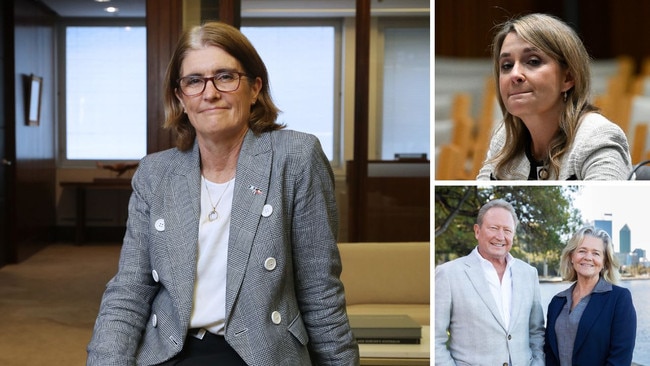
Business
Don't miss out on the headlines from Business. Followed categories will be added to My News.
The good, the bad and the ugly: 2023 has proved to be an eventful time for investors.
January
4th: Melbourne builder Hallbury Homes was the first construction firm collapse of the year and from there the numbers snowballed. The most high-profile were Porter Davis, which was placed into liquidation in March, and the building arm of beleaguered Sydney developer Jean Nassif’s Toplace Group, which called in administrators in early July. The latest statistics from the Australian Securities & Investments Commission show there were 3046 construction-related company collapses for the year to December 3, up almost 38 per cent from 2213 for the whole of 2022. Construction collapses account for a little over 27 per cent of the 11,160 company failures in the year to December 3.
11th: Sun Cable was placed in voluntary administration, derailing a giant solar and battery project after a spat between billionaire shareholders Mike Cannon-Brookes and Andrew Forrest. Both sought full ownership but Cannon-Brookes eventually won out in September after partnering with Quinbrook to oversee the domestic part of the ambitious renewable energy project.
23rd: There were no front page headlines to herald what would become one of the biggest business story of the year. The Tax Practitioners Board announced that former PwC tax partner Peter-John Collins had been deregistered as a tax agent, effective from December 23, 2022, for ‘‘integrity breaches”.
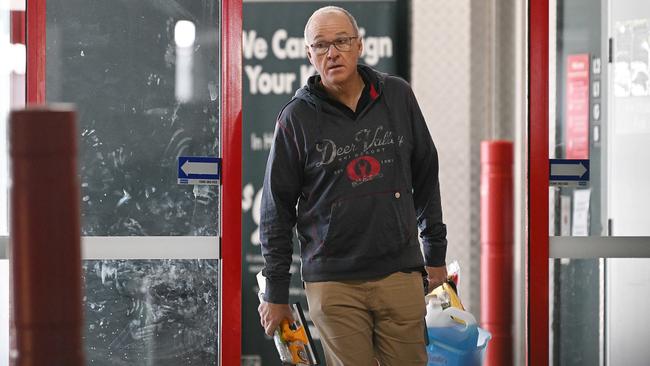
The TPB found that Collins had knowingly shared confidential government tax briefings with other members of the firm in a bid to front-run new tax laws set to be introduced in 2016. PwC’s reputation was soon in tatters and the toll on its leadership ranks severe. ASIC banned Collins from operating a financial services business for eight years and several other company figures remain in the sights of regulators. Former CEO Tom Seymour and his short-lived successor, Kristin Stubbins, were casualties of the very public tax scandal revelations. Singapore-based Kevin Burrowes was parachuted into the top job in July and wasted little time overhauling the management ranks and leadership structure. Amputating the government consulting services arm in a $1 deal with distressed asset investors Allegro Funds, to form Scyne Advisory, was the most drastic action.
February
3rd: Italian construction giant Webuild finalised a deal to take control of collapsed WA contractor Clough. Webuild emerged with almost all of the venerable engineering company’s assets, people and projects for $35.9m, after protracted negotiations. Clough collapsed in December 2022, after Webuild pulled out of an earlier deal to take control of the troubled contractor, with Deloitte appointed as voluntary administrators.
10th: Word began spreading in political and trade circles that China’s commerce ministry had said it was willing to discuss tariffs it had imposed on Australian wine following a diplomatic dispute that began in 2020.
In October Prime Minister Anthony Albanese confirmed the two countries had struck a tariff deal ahead of his trip to China. The industry is cautiously optimistic it can begin clearing a glut of shiraz and merlot when exports resume early in 2024.
21st: Retail veteran Leah Weckert was named as the next CEO of supermarket giant Coles, replacing Steven Cain from May 1.
March
3rd: Independent expert Grant Samuel declared BHP’s $28.25-a-share offer for copper miner OZ Minerals both “fair and reasonable”. The target’s shareholders voted overwhelmingly in favour of the $9.6bn deal on April 13 and the acquisition was wrapped up in early May.
April
4th: The Australian Competition & Consumer Commission warned it was not convinced about the benefits of ANZ’s controversial $4.9bn bid for Suncorp’s banking business, which the pair had announced with much fanfare in July 2022.
The watchdog officially blocked the deal in August on the grounds that it would diminish competition and lock in a “live and let live” banking culture. The would-be merger partners appealed to the Australian Competition Tribunal which kicked off a nine-day hearing in December, with a decision due on February 20.
28th: NAB chief executive Ross McEwan ordered his senior leaders back to the office five days a week as part of his push to return to pre-pandemic work routines. Some other high-profile firms issued staff mandates, but by the end of the year, The Australian’s 2024 CEO Survey showed most bosses had long given up the battle to get workers back to their desks full-time – with three days becoming the new normal.
May
2nd: Qantas crowned Vanessa Hudson as its new CEO, to replace Alan Joyce on November 3. After a 15-year tenure defined by a pugnacious leadership style, Joyce exited early because of a growing public backlash. Hudson took the reins on September 5, a month after the airline posted a record $2.47bn full-year pre-tax profit. Hudson sought to resurrect the reputation of the century-old airline giant after several bruising years but faced stiff headwinds.
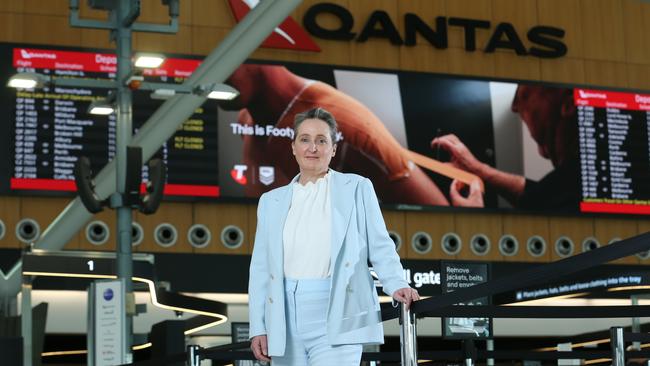
The ACCC took court action against Qantas in late August, accusing it of engaging in false, misleading or deceptive conduct by selling fares on flights that had been cancelled, and it’s seeking a penalty in the hundreds of millions of dollars. The case returns to court in February. The embattled airline, which is also facing a class action from disgruntled customers, in August scrapped the December expiry date on Covid flight credits worth $570m following intense public pressure. Chairman Richard Goyder was under pressure to follow Joyce out the door and in October the airline announced that the board veteran would retire ahead of the 2024 AGM. “We acknowledge the significant reputational and customer service issues facing the group and recognise that accountability is required to restore trust,” he said at the time.
5th: Macquarie Group’s commodities and markets boss Nick O’Kane raked in a bumper $57.6m in awarded pay for the firm’s 2023 financial year, putting him on track to top the ASX pay stakes after he again eclipsed CEO Shemara Wikramanayake’s annual pay. The massive pay packet from a company dubbed the Millionaires’ Factory reflects the fact that Mr O’Kane’s division was the biggest contributor to a jump in Macquarie’s full-year profit to a record $5.18bn. Wikramanayake’s awarded pay for 2023 jumped to $32.8m from $25.8m in the prior year.
15th: Newcrest Mining’s board recommended shareholders accept an all-scrip $29bn bid from the world’s biggest gold miner, Newmont.
June
5th: Myer chief executive John King announced his retirement from the department store owner in the second half of 2024. Shareholders were told at last month’s AGM that the search for a replacement was well-advanced, with interesting candidates both locally and internationally.

Whoever gets the gig will face challenges of slowing discretionary spending and a tough economic environment. Solly Lew, whose Premier Investments is the major shareholder at Myer, is also looking to fill the top job at his retail conglomerate, which includes the Smiggle and Peter Alexander brands. Richard Murray resigned as CEO of Premier Retail in August when the company announced it would consider demerging one or more of its brands into standalone businesses as part of a strategic review.
19th: The country’s energy market operator warned Australia was not building renewable energy facilities quickly enough to compensate for the loss of coal-fired power generation, as major projects continued to be beset by problems. The slow progress could intensify pressure on prices and stoke concern about energy security, warned Daniel Westerman, the head of the Australian Energy Market Operator. Australia has set an aggressive target of having renewable energy account for more than 80 per cent of the country’s electricity generation by the end of the decade, a target that has intensified pressure on existing coal-fired power stations, which already face social, economic and reliability questions.
July
4th: The sweep-up of undervalued and unloved agricultural stocks gathered pace, with Australia’s largest fruit and vegetable grower, packer and seller Costa revealing it had received a $1.6bn takeover bid from Paine Schwartz Partners. But the US private equity giant cut its bid to $1.5bn in September after Costa’s poor earnings guidance and softening market conditions. Shareholders will vote on the deal, which the board has recommended, in January.
14th: Michele Bullock was announced by Mr Albanese as the Reserve Bank’s first female governor, replacing Philip Lowe, who would depart in September, as part of a far-reaching revamp of the independent economic body.
At her first meeting presiding over the RBA board she kept rates on hold but the following month in November they were hiked to 4.35 per cent, where they remained after the December meeting.
27th: Bubs chair Katrina Rathie and her fellow directors narrowly survived a board spill initiated by a dissident shareholder group led by founder Kristy Carr. It put an end to a bitter, months-long dispute about the leadership of the goat-milk infant formula company.
August
21st: Origin Energy’s largest shareholder, AustralianSuper, indicated it would not back a $19bn takeover by Brookfield and EIG, saying the share price was a ‘‘low-ball offer’’ and substantially below its long-term estimate.
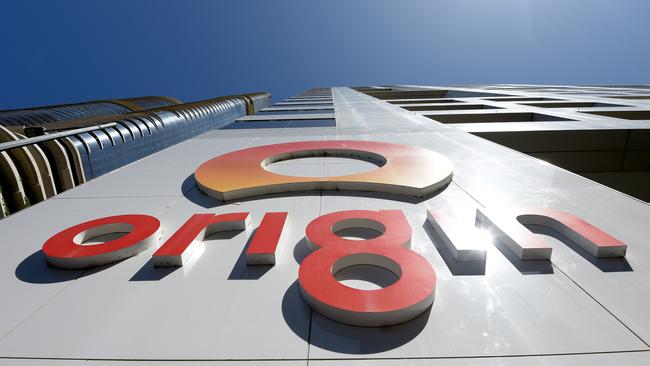
A revised bid collapsed earlier this month when the consortium failed to secure enough support from Origin shareholders, a result that raised few eyebrows after the deal had swung from seemingly infallible to inevitable defeat in just a few months.
September
1st: A defiant Andrew Forrest claimed that an extraordinary wave of management departures at his Fortescue Metals Group was sparked when he returned from an overseas trip to find the company’s strategy had been hijacked by several of its executive team. He said many of the executives who had left the iron ore major had struggled to cope with the “boiler room” conditions of the company and were not following his green vision.
Among the departures were chief executive Fiona Hick and chief financial officer Christine Morris, while former Reserve Bank deputy governor Guy Debelle resigned as director of green hydrogen subsidiary Fortescue Future Industries.
It has been an eventful year for Forrest and his wife Nicola, who announced their separation in July. A carve-up of the couple’s assets made Nicola roughly $1bn richer than her husband with an estimated fortune of $15.5bn at the time, and this figure will only have increased as Fortescue Metals Group shares have rallied on the back of rising iron ore prices.
22nd: Rupert Murdoch announced he was stepping down as executive chairman of Fox Corporation and News Corp after a seven-decade career, in a move that will see his son Lachlan become the sole chair.
26th: A civil war erupted within the boardroom of Endeavour after former Woolworths boss Bill Wavish won support from the biggest shareholder, Bruce Mathieson Snr, to nominate as a director and arrest the company’s poor performance. In a bitter standoff, Endeavour – the nation’s largest liquor retailer, and a hotels and pokies owner – initially blocked Wavish, saying his lack of necessary regulatory and probity clearances made him ineligible for election as a director. Mathieson vowed to continue his war against the Endeavour board and chairman Peter Hearl after Wavish failed in his bid to be elected as a director at a gruelling and at times rowdy three-hour shareholder meeting in October.
27th: Shares in Star Entertainment plunged to a fresh low after the beleaguered casino operator raised $1.2bn in an equity offer at 60c a share and did a refinancing deal. The stock subsequently slumped as low as 45.5c on December 12 and finished the year just above 51c. In June the company said the opening of its ‘‘game-changing’’ $3.6bn Queen’s Wharf casino project in Brisbane had been pushed back until April next year due to construction delays. In a market update just before Christmas, it said the date had been pushed back to August, 2024, following settlement of a threatened legal battle between its half-owned Destination Brisbane Consortium and construction giant Multiplex over cost blowouts. Regulators in both Queensland and NSW last month extended the deadline to show that it is a suitable casino licence holder, following explosive findings that it flouting anti-money laundering and counter-terrorism financing laws. Special manager Nicholas Weeks’ term has also been extended. The Star’s remediation plan includes about 640 milestones across 15 workstreams to be implemented over several years.
October
27th: Mining magnate Gina Rinehart’s private outfits delivered two of the biggest profits by private Australian companies. Roy Hill, majority-owned by Mrs Rinehart’s Hancock Prospecting, unveiled a $2.7bn net profit for the 2023 financial year, and paid more than $3bn in dividends to its shareholders.
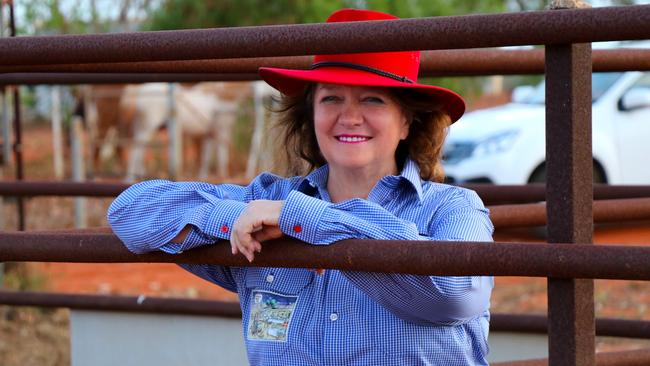
Hancock Prospecting made a $5.04bn net profit from $13.2bn revenue for the year to June 30, the company said, which was several times larger than any other Australian-owned private company. Over the past year Mrs Rinehart once again scoured the market for acquisitions. Earlier this month it was announced that fashion group Propel would sell its Driza-Bone and Rossi boots brands to Mrs Rinehart’s S. Kidman & Co pastoral company. The billionaire’s biggest power-move this year has been her foray into the lithium space. She landed a strategic 18 per cent stake in lithium miner Azure Minerals, just weeks after raiding the register of Liontown Resources, buying a 19.9 per cent interest.
November
8th: An 11-hour network outage by Optus that impacted 10 million Australians, sparking widespread economic chaos and leaving more than 200 people unable to call emergency services on triple-0, was one of the biggest corporate stories of the year. The telco’s lack of communication, poor planning and inadequate compensation plus CEO Kelly Bayer Rosmarin’s handling of the crisis were widely panned. In a lacklustre performance before a gruelling Senate committee inquiring into the outage on Friday, November 17, she insisted it would have been unusual for a CEO like her to make a public appearance during a crisis. By the Monday she had announced her resignation, effective immediately. “Having now had time for some personal reflection, I have come to the decision that my resignation is in the best interest of Optus moving forward,” she said. Bayer Rosmarin had presided over two high-profile telco disasters within 13 months. In September 2022, the telco was hacked and cyber criminals stole the personal details of almost 10 million Australians along with other sensitive data.
December
13th: Shares in Sigma Healthcare soared more than 70 per cent to a seven-year high after the company’s stock returned to trading and investors rushed the pharmaceutical wholesaler to get a front seat in its planned $8.8bn merger with retail colossus Chemist Warehouse. The stock finished the year up almost 70 per cent.
18th: Family-owned Barro Group teamed up with Irish building materials giant CRH to lob a $2.1bn takeover for cement manufacturer Adbri.
28th: Commonwealth Bank shares reached a record closing high of $112.29 as markets rallied on bets of aggressive interest rate cuts by central banks in 2024. Commonwealth Bank shares finished the year at $111.80, having hit a fresh all-time high of $112.37 in intraday trading, up almost 9 per cent for the year.
Originally published as Business 2023 in review: Scandals, takeovers, outages – what a year




